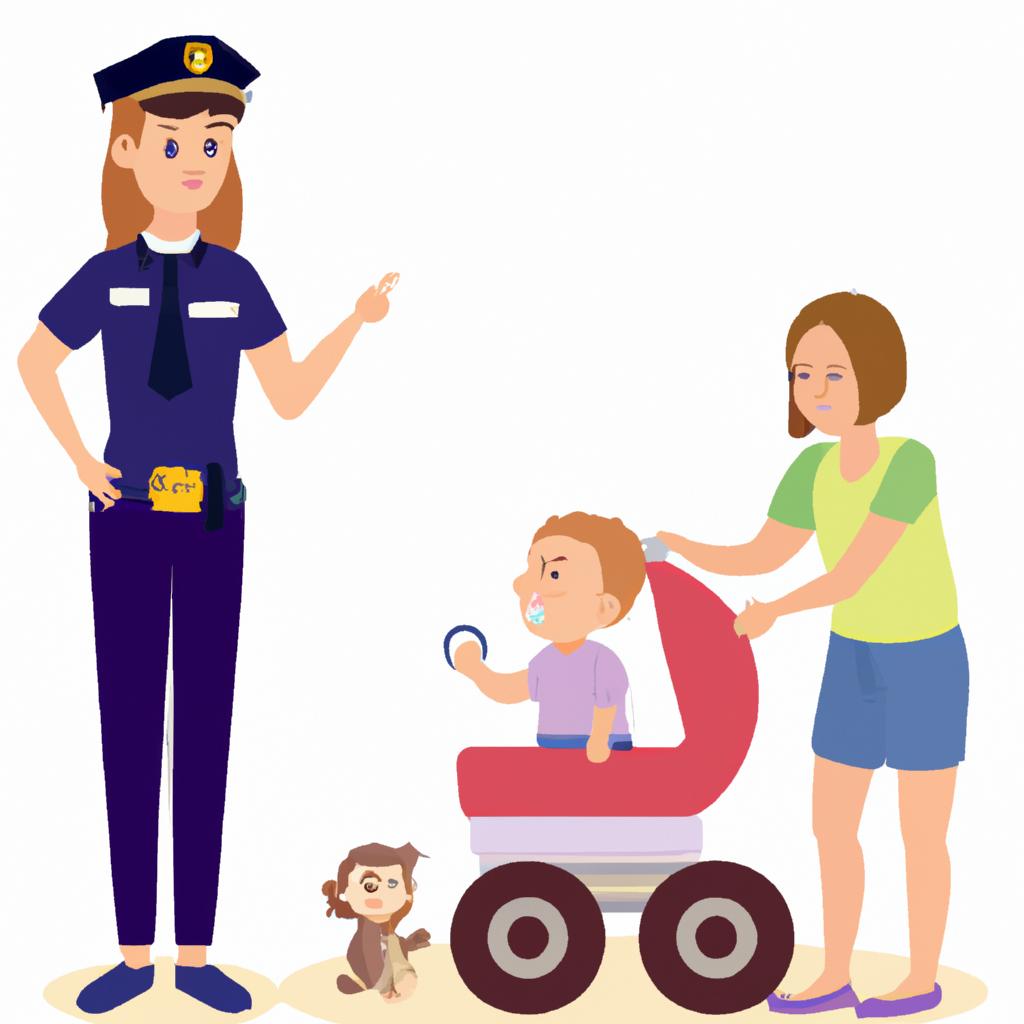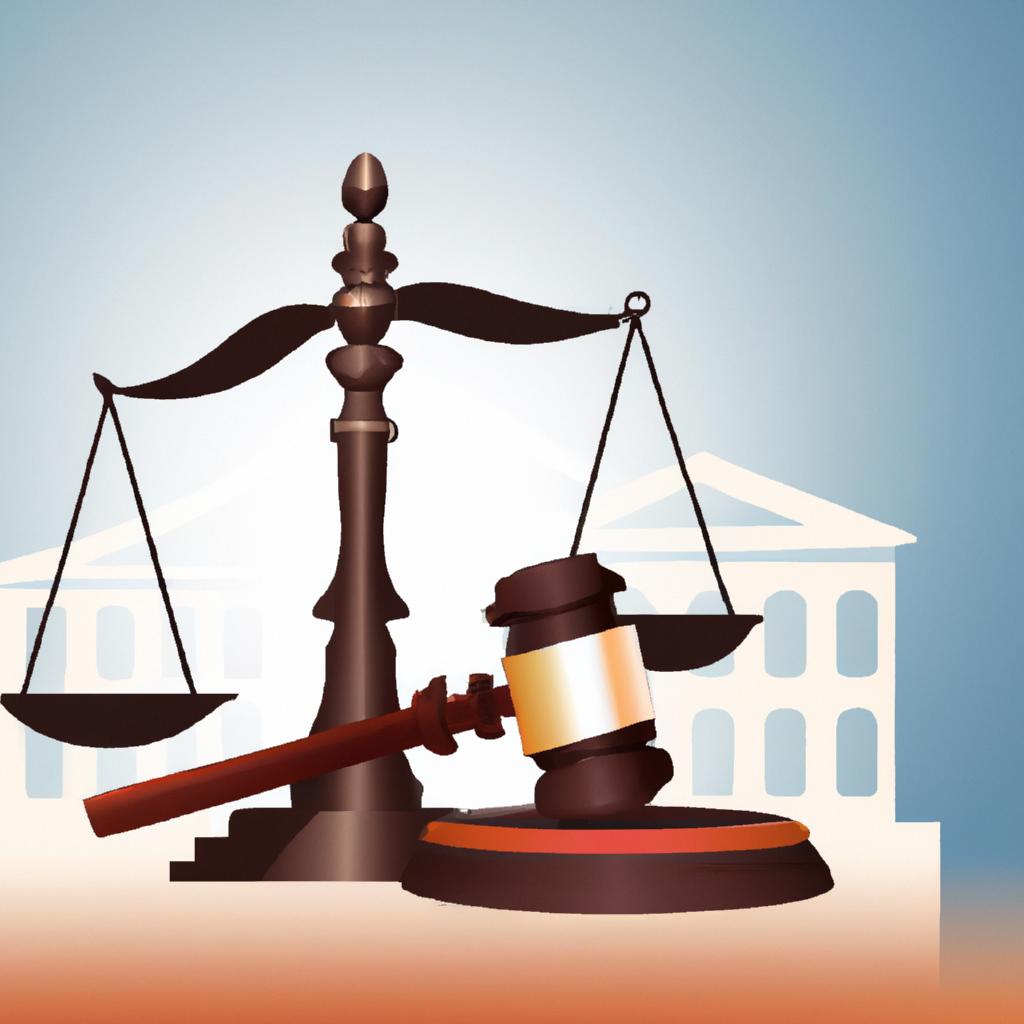In the intricate web of familial relationships, the role of a custodian of a child stands as a pillar of stability and protection. As experienced legal practitioners at Morgan Legal Group in New York City, we understand the gravity of this responsibility and the profound impact it has on the lives of both the custodian and the child entrusted to their care. Join us as we delve into the nuanced legal obligations and duties of a custodian of a child, exploring the intricate dance of rights, responsibilities, and the paramount consideration of the child’s best interests.
Role of the Custodian in Safeguarding the Child’s Well-being
The is of utmost importance and carries significant responsibilities. As a custodian, you are entrusted with the care and protection of the child, ensuring their safety, health, and overall welfare.
<p>Some key responsibilities of a custodian include:</p>
<ul>
<li><strong>Providing a safe and nurturing environment:</strong> Ensuring that the child's living space is secure, healthy, and conducive to their physical and emotional well-being.</li>
<li><strong>Meeting the child's basic needs:</strong> This includes providing food, shelter, clothing, and medical care to ensure the child's health and development.</li>
<li><strong>Supporting the child's education and social development:</strong> Encouraging learning, growth, and positive social interactions to help the child thrive academically and socially.</li>
</ul>

Legal Obligations and Responsibilities of a Custodian
Custodians play a crucial role in the upbringing and wellbeing of a child. As a custodian, you hold specific legal obligations and responsibilities that must be fulfilled diligently. It is essential to understand and adhere to these duties to ensure the best interests of the child in your care.
Some key include:
- Providing a safe and nurturing environment for the child to grow and thrive.
- Meeting the child’s basic needs, such as food, shelter, clothing, and healthcare.
- Ensuring the child’s education and development by enrolling them in school and supporting their learning.
- Advocating for the child’s rights and best interests in legal matters and decision-making processes.

Maintaining Effective Communication Channels with the Child’s Legal Guardians
One of the most important aspects of being a custodian of a child is . This ensures that all parties involved are on the same page and working towards the best interests of the child. Effective communication is key in navigating any challenges that may arise and in making decisions that will benefit the child in the long run.
Regular updates and open lines of communication with the child’s legal guardians are essential in building trust and fostering a positive relationship between all parties. Whether it’s scheduling regular meetings, providing status reports, or addressing any concerns that may come up, clear and consistent communication is vital in ensuring that the child’s well-being is always the top priority.

Recommendations for Establishing a Trusting Relationship between the Custodian and the Child
Building a trusting relationship between a custodian and a child is crucial for the well-being and development of the child. Here are some recommendations to establish and maintain a strong bond:
- Open Communication: Encourage open and honest communication between the custodian and the child. Listen actively to the child’s thoughts, feelings, and concerns.
- Consistency: Be consistent in your actions, rules, and expectations. This helps the child feel secure and build trust in the custodian’s reliability.
- Respect: Treat the child with respect and dignity. Show empathy and understanding towards their needs and feelings.
By following these recommendations, the custodian can foster a positive and trusting relationship with the child, creating a safe and nurturing environment for their growth and development.
Q&A
Q: What is a custodian of a child?
A: A custodian of a child is a person who is legally responsible for the care and well-being of a child.
Q: What are the duties of a custodian of a child?
A: The duties of a custodian of a child include providing food, shelter, clothing, medical care, and emotional support for the child. They are also responsible for making important decisions on behalf of the child, such as education and healthcare choices.
Q: How does someone become the custodian of a child?
A: A person can become the custodian of a child through various means, such as legal guardianship, adoption, or being appointed by a court.
Q: Can a custodian of a child be held legally accountable for the actions of the child?
A: Yes, a custodian of a child can be held legally accountable for the actions of the child in certain situations, especially if negligence or misconduct on the part of the custodian is involved.
Q: What rights does a custodian of a child have?
A: A custodian of a child has the right to make decisions regarding the child’s care, education, and welfare. They also have the right to seek legal protections for the child and to advocate on behalf of the child’s best interests.
Q: How can someone become a custodian of a child if they are not the child’s biological parent?
A: Someone can become a custodian of a child who is not their biological child through legal channels such as guardianship, adoption, or being appointed as a custodian by a court. These processes involve demonstrating that the individual is capable of providing a stable and nurturing environment for the child.
Key Takeaways
In conclusion, being appointed as the custodian of a child brings with it great responsibility and an opportunity to provide love, care, and support to a young individual in need. It is a role that requires patience, understanding, and compassion. As custodians, we have the power to shape and influence a child’s future in a positive way. Let us embrace this role with open hearts and minds, and strive to create a nurturing and safe environment for the children under our care. Together, we can make a difference in the lives of those who need it most.
 A custodian of a child is an individual who has been given the legal responsibility and authority to care for and make decisions on behalf of a minor child. This can be a parent, relative, or guardian who is responsible for the child’s physical and emotional well-being and also acts as their legal guardian. The role of a custodian is a serious responsibility that requires careful consideration and understanding of the legal and practical implications. In this article, we will discuss everything you need to know about being a custodian of a child, including the benefits, practical tips, and real-life examples.
A custodian of a child is an individual who has been given the legal responsibility and authority to care for and make decisions on behalf of a minor child. This can be a parent, relative, or guardian who is responsible for the child’s physical and emotional well-being and also acts as their legal guardian. The role of a custodian is a serious responsibility that requires careful consideration and understanding of the legal and practical implications. In this article, we will discuss everything you need to know about being a custodian of a child, including the benefits, practical tips, and real-life examples.
Key Responsibilities and Duties of a Custodian:
1. Legal Authority:
The primary responsibility of a custodian of a child is to have the legal authority to make decisions on behalf of the child. This includes decisions related to education, healthcare, and financial matters. The custodian must also ensure that the child is provided with a safe and stable living environment.
2. Physical Care:
Another vital responsibility of a custodian is to provide for the physical needs of the child. This includes ensuring that the child has access to food, shelter, clothing, and medical care. The custodian must also ensure that the child’s basic needs, such as hygiene, safety, and emotional support, are met.
3. Financial Management:
Being a custodian also involves managing the child’s financial resources. This includes handling any income or assets the child may have, such as an inheritance or trust fund. The custodian is responsible for using these funds for the benefit of the child, ensuring they are spent wisely and in the child’s best interest.
4. Decision Making:
As the legal guardian of the child, the custodian is responsible for making all major decisions on behalf of the child. This can include decisions related to education, healthcare, and religion. It is essential for the custodian to make these decisions in the best interest of the child and consider their wishes and needs.
5. Creating a Stable Environment:
A custodian must provide a stable and nurturing environment for the child to thrive. This includes establishing and enforcing rules, maintaining a routine, and providing emotional support. The custodian must also ensure that the child’s physical and emotional needs are met and do their best to provide a safe and loving home.
Benefits of Being a Custodian:
1. Legal Authority:
Being a custodian grants you the legal authority to make decisions on behalf of the child. This means that you do not need to seek permission from the child’s parents or other family members before making important decisions. It provides stability and allows you to act in the best interest of the child without any interference.
2. Parental Rights:
In some cases, being a custodian can have the same legal rights and responsibilities as being a parent. This can include having the right to consent to medical treatment, making educational decisions, and even having custody of the child.
3. Personal Bond:
Being a custodian allows you to develop a special bond with the child in your care. As you take on the role of a parent, you have the opportunity to create a meaningful and lasting relationship with the child. This bond can be beneficial for the child’s emotional well-being and can help them feel secure in their new living situation.
4. Providing a Stable Home:
Many children in need of a custodian come from unstable or unsafe living environments. By taking on this role, you have the opportunity to provide them with a stable and nurturing home. This can have a significant positive impact on the child’s overall well-being and development.
Practical Tips for Being a Custodian:
1. Understand the Legal Process:
Before agreeing to be a custodian, it is crucial to understand the legal process involved. This includes knowing the differences between temporary and permanent custody, the legal papers required, and any potential risks or legal responsibilities.
2. Communicate Effectively:
It is essential to communicate clearly and openly with the child’s parents or other family members involved. Establishing a positive and respectful relationship with them can help make the transition easier for the child and ensure that everyone’s wishes and needs are considered.
3. Seek Support:
Being a custodian can be emotionally and mentally challenging. It is essential to seek support from friends, family, or professional counseling to help you cope with any difficulties and provide the best care for the child.
4. Educate Yourself:
Take the time to educate yourself on the child’s needs, including any medical conditions, educational requirements, and their emotional well-being. This will help you make informed decisions and ensure you are providing the best care for the child.
Real-Life Example:
One real-life example of a custodian is the famous celebrity, Angelina Jolie. Jolie became the custodian of her adopted Cambodian son, Maddox, in 2002. Due to Cambodian laws, Jolie had to work closely with the Cambodian government and Maddox’s living relatives to gain legal custody and bring him to the United States.
Jolie’s experience as a custodian has been positive, and she has spoken about how Maddox has enriched her life. She has also used her platform and experiences to advocate for children’s rights worldwide. Jolie is a prime example of a successful custodian and how this role can bring love and joy into both the child’s life and the custodian’s life.
Conclusion:
Being a custodian of a child is a significant responsibility that requires compassion, patience, and a clear understanding of the legal process and your role. It can also be a rewarding experience that allows you to make a positive impact on a child’s life and develop a meaningful relationship with them. By understanding the key responsibilities, benefits, and practical tips of being a custodian, you can confidently take on this role and provide the best care for the child in your custody.

